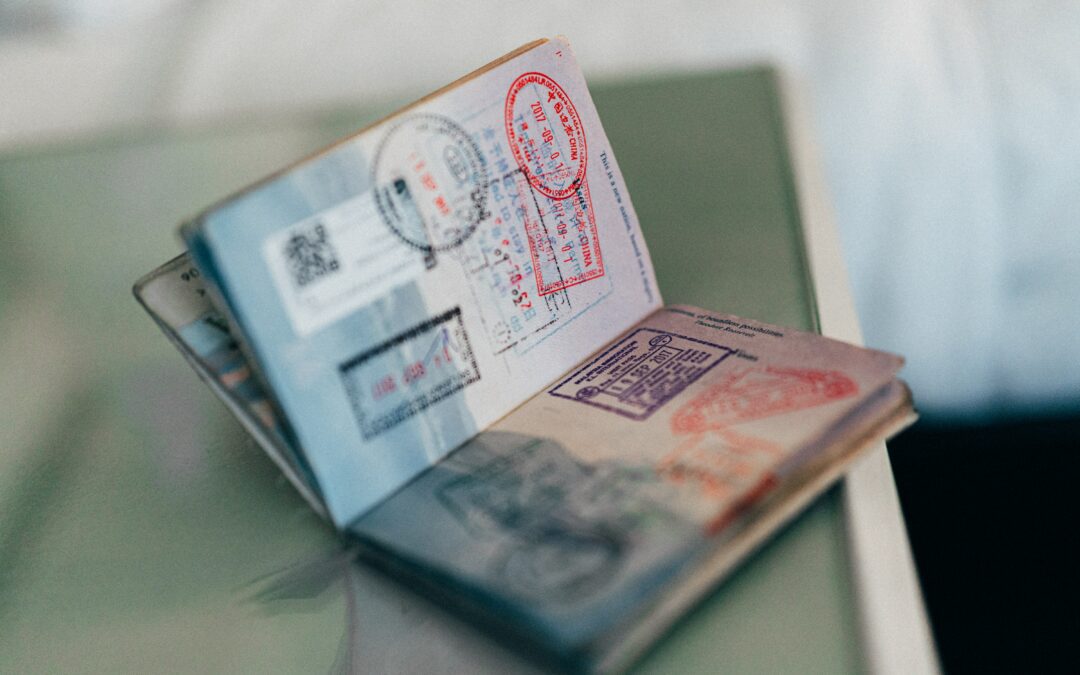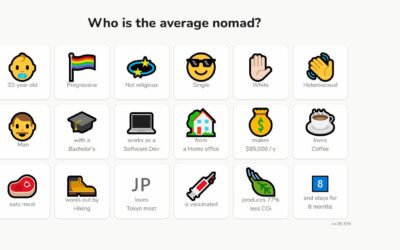|
|
Different passports have different power, and while we all know that, digital nomads are especially aware of it. As a digital nomad, having a strong passport has a huge impact on your life, as the reality is, some passports allow you to travel freely and work remotely easier than others.
With the rise in the numbers of digital nomads, especially during and after the pandemic, came the research into facilitations and visas that allow digital nomads to travel and reside in different places easier. Simultaneously came the increasing research and demand for obtaining second nationalities, and this is where The Nomad Passport Index comes in.
In this article, we will go through the main points of the index and what the index means for digital nomads.
The Nomad Passport Index
The Nomad Passport Index is a ranking of passports that is based on their ability to facilitate the digital nomad lifestyle by allowing easier travel and remote work.
The index looks into the power of different passports from a digital nomad perspective; this includes assessing the ability to travel to different countries visa-free (accounts for 50% of the assessment), the taxation laws that come with the passport (20%), allowing dual citizenship (10%), the perception of the country based on the World Happiness Report (10%) and freedom (10%) measured by press freedom, military service regulations, and government surveillance among others.
The report is issued by Nomad Capitalist, a tax and immigration consultancy firm established by Andrew Henderson in 2012. It analyzes 199 passport-issuing countries.
The goal of the index is to give digital nomads the information they need about which passports are the strongest and the most helpful for their lifestyle.

The strongest passports
The top-ranked 3 passports on the list are United Arab Emirates, Luxembourg, and Switzerland. These 3 passports offer travel to a huge number of countries without requiring a visa. They also have advantageous taxation laws and obtaining citizenship is comparatively easier than in many other countries.
The United Arab Emirates jumped all the way from the 35th rank in 2022 to the top rank in 2023, which is quite a jump, seeing that most countries moved only a few stops.
The UAE also has a digital nomad visa, specifically for Dubai, where the tax policies are favorable for digital nomads, the economy, and the economy is open with a lot of freedom and a big ex-pat community. UAE has a dedicated ministry for happiness! Whose job is to ensure the happiness of citizens.
Other nomad hotspots are not far on the list. For example, Portugal, a digital nomad top performer over the last years, ranked at number 5, right after Ireland.
Croatia, one of the first countries to offer a digital nomad visa, and a top-rated destination among nomads is at the 25th rank, followed closely by Greece at the 27th rank.
Spain one of the latest countries to offer a long-awaited digital nomad visa came at number 29.
The lowest-ranking countries on the list were countries that suffer from political turmoil or instability like Iraq, Yemen, and Afghanistan.
Why do passports matter?
To be a digital nomad, you have to be able to do 2 things, travel freely and work remotely, and being able to work remotely, essentially depends on being able to travel freely.
Facing restrictions while traveling, hardships in obtaining residency, or restrictions on freedom of lifestyle are all things that stand in the way of digital nomads enjoying their location-independent lifestyle.

How can a digital nomad get a strong passport?
Digital nomads have several options that allow them to obtain dual citizenship, depending on the regulations of the country.
Some countries allow dual citizenship through investing a certain amount in the country, others allow a citizenship path after spending a determined amount of years in the country.
Before you make the decision to obtain certain citizenship, do your research and consider all the other factors that will go into this step.
For example, consider the cost of living, how much you would like to live in that country (as many citizenship paths require spending most of the year there), and whether you need to learn the language, or pass citizenship exams.
You need to consider your life as a digital nomad there. Is there high-speed internet? co-working places? Friendly locals? Activities and places to discover?…etc.
All of this besides the financial investment that will go into obtaining citizenship, whether that is an actual investment, or just paying for legal services and fees.
The index can help point you in the right direction, but only by doing your research before taking this step, you can ensure that you make an informed decision that allows you to enjoy the nomad lifestyle at its best.
Would you consider dual citizenship? Do you think it’s the only way for nomads to travel easier? Or might there be some other way?
Let us know what you think.









